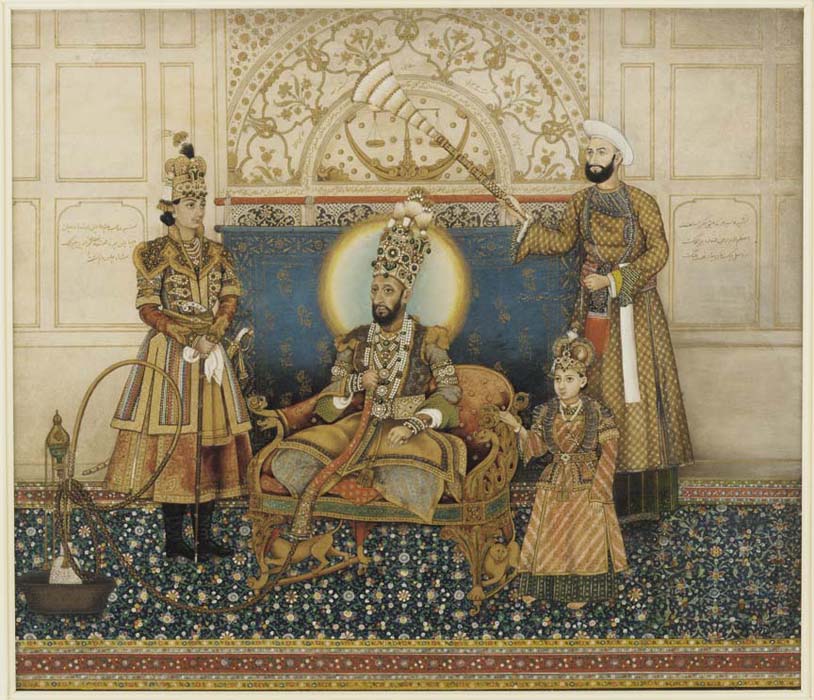FWP:
SETS == POETRY
GRANDIOSITY: {5,3}
WRITING: {7,3}
For more on Ghalib's unpublished verses, see the discussion in {4,8x}. See also the overview index.
The first line is clearly a high point of Ghalibian 'grandiosity'. Then the second line reserves the emphatic, closural, rhyme-word position, for the word paayah . This word can certainly have the general meaning of 'support' or 'foundation' (see the definition above). But these are extensions of its literal meaning of 'leg'. And since it is specifically Asad's 'pen'-- a reed-pen, most probably-- that is the paayah , the pen can hardly fail to suggest a 'leg'.
Once we have the vision of the pen as a 'leg' of the throne, the effect is bound to be, so to speak, destabilizing. For a ta;xt that has a round, pen-like leg needs to have four of them, to maintain its balance. Perhaps three would do, but in Ghalib's world a proper, platform-like ta;xt had four:
So the question arises-- were there then three other 'pens' that helped support the throne of the lord of poetry? How about Bedil's pen? How about Mir's pen? Who else's pen could be added, to make the throne stable? Perhaps Ghalib is inviting us to consider the question. But even if the throne of poetry has other 'legs' as well, we know that the whole realm of poetry is populated and flourishing only through the agency of one poet, and we know exactly who it is.

Asi:
Oh Asad, the world of poetry is populated thanks only/emphatically to me, along with all its ornaments and adornments. So to speak, speech/poetry is a king seated on a throne. And my pen is a support of his royal throne.
== Asi, p. 299